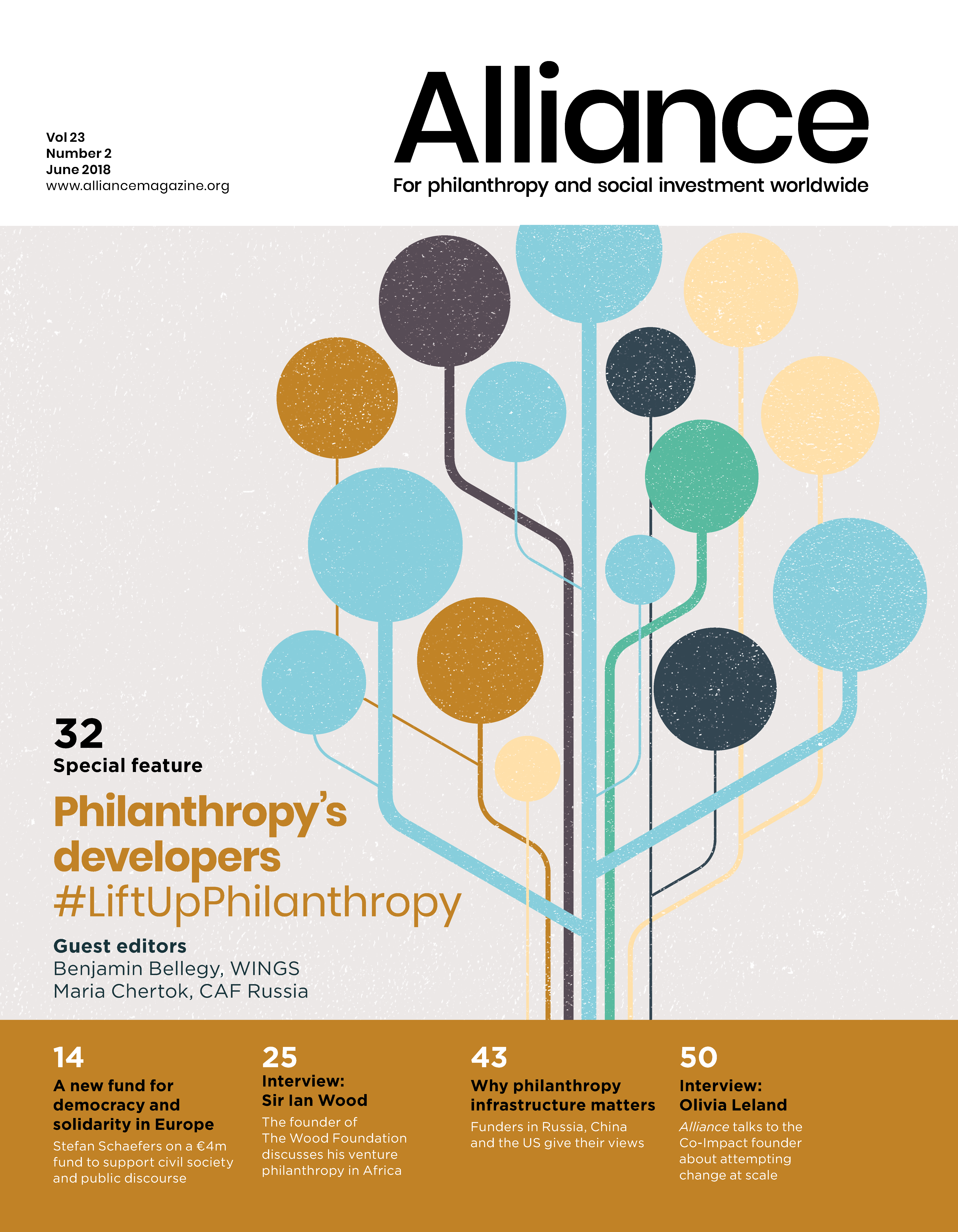To challenge growing restrictions on civil society, philanthropy will need to work collaboratively. Infrastructure organizations should be at the fore
Philanthropy is an integral part of civil society and many foundations dedicate significant resources to ensuring an independent, active and flourishing civil society space which depends on the freedom to act and the ability to respond to trends affecting this space. However, these things are coming under increased pressure from foreign funding restrictions, unfair and complicated tax regimes, hurdles in cross-border actions and the impact of legislation on counter terrorism/money laundering. This shrinking space, as it has come to be termed, is concerning a growing number of funders.
Institutional philanthropy must work together to develop strategies to overcome these barriers in order to improve the environment for philanthropy and wider global civil society.
Restrictions on civil society space spring from different motives: national security, economic interests, sovereignty or fear of critical voices. Sometimes even the sector itself may limit its space to operate through self-censorship or the lack of courage to act. Solutions are therefore not straightforward and require the collaboration of different sectors locally and internationally. This is where philanthropy infrastructure has a key role. Institutional philanthropy must work together to develop strategies to overcome these barriers in order to improve the environment for philanthropy and wider global civil society. They need to test out new ideas and initiatives, concrete actions and real collaboration, creating synergies instead of duplication.
The following case studies highlight the opportunities, challenges and lessons learned from working collaboratively and offer insights into how and where philanthropic infrastructure can successfully intervene.

‘Restrictions on civil society space spring from different motives…’
Changing policy though dialogue – Financial Action Task Force (FATF)
In 2016, following a long collaborative process of advocacy and dialogue among actors who don’t usually work together, the FATF revised one of its 40 Recommendations, number 8, which deals with the non-profit sector. This policy change and the creation of a formal dialogue between FATF and the NPO sector reflects the success of the global NPO coalition on FATF led by four of its leading members: the Charity and Security Network, the European Center for Not-for-Profit Law, the European Foundation Centre, and the Human Security Collective, and supported by others (see http://www.fatfplatform.org). The four partners worked towards a clear, common mission of policy change, which was achieved through working closely with civil society actors and helping them understand and engage around FATF also at national level.
Philanthropy collaboration and the creation of the Funders Initiative on Civil Society (FICS)
Three philanthropy networks, Ariadne, the European Foundation Centre and the International Human Rights Funders Group co-organized a workshop in Berlin in 2015 on the common agenda of challenging the closing space for civil society. It brought together different funders, civil society organizations and governments to explore ways of aligning work and moving forward, and resulted in a practical starting point for funders. Following this a number of funders set up a new initiative, the Funders Initiative on Civil Society, bringing together private philanthropy interests from around the world to help ensure that the space for civil society is free and open in a global context.
In 2017, the EFC and FICS commissioned a paper on how restrictions on civil society affect development and humanitarian funders and actors. The paper suggests that many international foundations and INGOs are taking an ‘adaptation and mitigation’ approach to these constraints and that more could potentially be done, by, for example, engaging in advocacy. It is complemented by expert blogs focusing on their particular responses to the closing space in specific contexts and their work around security policy and bank de-risking.
These examples highlight the importance of working with existing and new allies, testing innovative solutions, trusting the expertise of others and above all having all parts of the ecosystem contributing to the creation of effective synergies and solutions.
Hanna Surmatz is enabling environment manager, European Foundation Centre.
Email: HSurmatz@efc.be Twitter: @The_EFC






Comments (0)